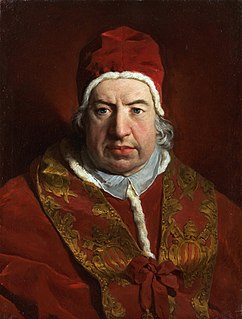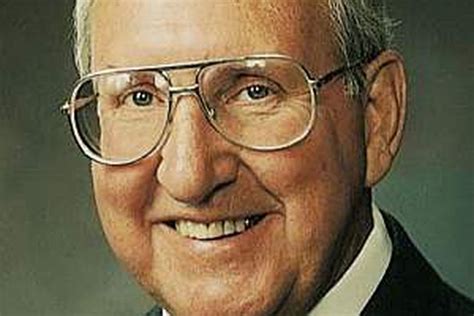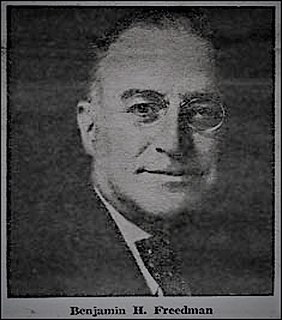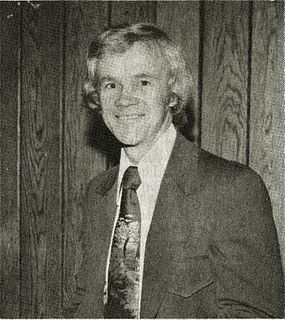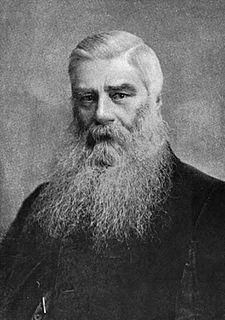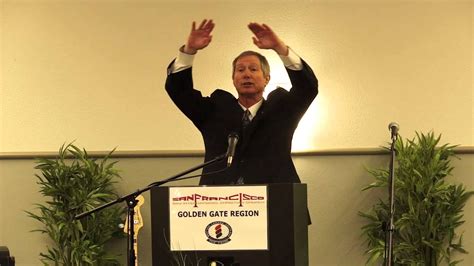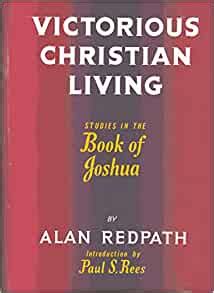Top 1200 Christian Values Quotes & Sayings - Page 20
Explore popular Christian Values quotes.
Last updated on November 21, 2024.
Q. What is your view of the daily discipline of the Christian life - the need for taking time to be alone with God? Lewis: "We have our New Testament regimental orders upon the subject. I would take it for granted that everyone who becomes a Christian would undertake this practice. It is enjoined upon us by Our Lord; and since they are his commands, I believe in following them. It is always just possible that Jesus Christ meant what he said when He told us to seek the secret place and to close the door.
Spirituality is much wider than any particular religion, and in the larger ideas of it that are now coming on us even the greatest religion becomes no more than a broad sect or branch of the one universal religion, by which we shall understand in the future man's seeking for the eternal, the divine, the greater self, the source of unity and his attempt to arrive at some equation, some increasing approximation of the values of human life with the eternal and the divine values.
The Christian is free from all other human beings. He does not have to live over against others, controlled by their actions and responses. Rather, he lives according to Christ's commands. This is Christian freedom. It is a freedom unknown by others. It is not just when others do the things that we like that we act properly toward them; we are free to do good even when they don't because our actions are not dependent on their responses. It is the Lord Christ when we serve!
Is a Christian- one who communicates daily with the Creator- to divorce himself from the things God created and intended man to have, and which demonstrate the fact that man has been made in the image of God? In other words, are we who have been made in the image of our creator to be less creative than those who do not know the Creator? The Christian should have more vividly expressed creativity in his daily life.
... with every Asiatic country where we operate in cooperation with the existing culture, the need for intelligent understanding of that country and its ways of life will be crucial. These nations will very likely not respond to appeals with which we are familiar, and not value rewards which seem to us irresistible. The danger--and it would be fatal to world peace--is that in our ignorance of their cultural values we shall meet in head-on collision and incontinently fall back on the old pattern of imposing our own values by force.
One of the marks of a certain type of bad man is that he cannot give up a thing himself without wanting every one else to give it up. That is not the Christian way. An individual Christian may see fit to give up all sorts of things for special reasons--marriage, or meat, or beer, or the cinema; but the moment he starts saying the things are bad in themselves, or looking down his nose at other people who do use them, he has taken the wrong turning.
If I do something I think is new, it will be misunderstood, but if people like it, I will be disappointed because I haven't pushed them enough. The more people hate it, maybe the newer it is. Because the fundamental human problem is that people are afraid of change. The place I am always looking for-because in order to keep the business I need to make a little compromise between my values and customers' values-is the place where I make something that could almost-but not quite-be understood by everyone.
To have faith requires courage, the ability to take a risk, the readiness even to accept pain and disappointment. Whoever insists on safety and security as primary conditions of life cannot have faith; whoever shuts himself off in a system of defense, where distance and possession are his means of security, makes himself a prisoner. To be loved, and to love, need courage, the courage to judge certain values as of ultimate concern – and to take the jump and to stake everything on these values.
I was born into a Christian household, in a parsonage in fact, so I grew up in sort of a missionary atmosphere but it was an environment which involved both the traditional religions as well as the Muslim religion, so we were exposed to all the various facets of faith, micro cultures which existed within those beliefs, and even though I've lost whatever Christian faith was drummed into me as a child, I still maintain very good relationship with all the various religions.
In every Christian's Heart, there is a cross and a throne, and the Christian is on the throne till he puts himself on the cross; if he refuses the cross, he remains on the throne. Perhaps this is at the bottom of the backsliding and worldliness among Gospel believers today. We want to be saved, but we insist that Christ do all the dying. No cross for us, no dethronement, no dying. We remain king within the little kingdom of man's soul and wear our tinsel crown with all the pride of a caesar; but we doom ourselves to shadows and weakness and spiritual sterility.
When we assume God to be a guiding principle well, sure enough, a god is usually characteristic of a certain system of thought or morality. For instance, take the Christian God, the summum bonum: God is love, love being the highest moral principle; and God is spirit, the spirit being the supreme idea of meaning. All our Christian moral concepts derive from such assumptions, and the supreme essence of all of them is what we call God.
There are no unique postures and times and limitations that restrict our access to God. My relationship with God is intimate and personal. The Christian does not go to the temple to worship. The Christian takes the temple with him or her. Jesus lifts us beyond the building and pays the human body the highest compliment by making it His dwelling place, the place where He meets with us. Even today He would overturn the tables of those who make it a marketplace for their own lust, greed and wealth.
I think it's important to realise that what happens in Neo-Platonism beginning with Plotinus and Porphyry and then going on for the next several centuries, is a real kind of contest for the ideas and convictions of the intelligentsia of the later Roman Empire. So that you have Christians slowly converting more and more powerful people until of course actually Constantine and then other emperors after him, become Christian, and the empire becomes a Christian empire rather than Pagan empire.
Jeff Chu's pilgrimage across America to discover his own place as a gay man in the Christian church as well as attitudes about being gay and Christian across denominations is at once timely, smart, poignant, disturbing, inspiring, and maddening. It's essential reading for anyone who cares about the rights of the LGBTQ community to be treated as equal citizens at every level, including the religious-which means it should be essential reading for everybody.
Our beliefs about ourselves in relation to the world around us are the roots of our values, and our values determine not only our immediate actions, but also, over the course of time, the form of our society. Our beliefs are increasingly determined by science. Hence it is at least conceivable that what science has been telling us for three hundred years about man and his place in nature could be playing by now an important role in our lives.
In the nature of our existence, we must act to achieve values. And in order to act appropriately, we need to value the beneficiary of our actions. In order to seek values, we must consider ourselves worthy of enjoying them. In order to fight for our happiness, we must consider ourselves worthy of happiness.
You'll be riding along in an automobile. You'll be the driver perhaps. You're a Christian. There'll be several people in the automobile with you, maybe someone who is not a Christian. When the trumpet sounds you and the other born-again believers in that automobile will be instantly caught away - you will disappear, leaving behind only your clothes and physical things that cannot inherit eternal life. That unsaved person or persons in the automobile will suddenly be startled to find the car suddenly somewhere crashes.
The observance of Lent is the very badge of Christian warfare. By it we prove ourselves not to be enemies of Christ. By it we avert the scourges of divine justice. By it we gain strength against the princes of darkness, for it shields us with heavenly help. Should men grow remiss in their observance of Lent, it would be a detriment to God’s glory, a disgrace to the Catholic religion, and a danger to Christian souls. Neither can it be doubted that such negligence would become the source of misery to the world, of public calamity, and of private woe.
As a newborn baby breathes and cries, so the signs of life in a newborn Christian are faith and repentance, inhaling the love of God and exhaling an initial cry of distress. And at that point what God provides, exactly as for a newborn infant, is the comfort, protection, and nurturing promise of a mother. "If God is our father, the church is our mother." The words are those of the Swiss Reformer John Calvin ... it is as impossible, unnecessary, and undesirable to be a Christian all by yourself as it is to be a newborn baby all by yourself.
In Acts 14:1, we are told, "At Iconium Paul and Barnabas went as usual into the Jewish synagogue. There they spoke so effectively that a great number of Jews and Gentiles believed." This is what should be sought in Christian schools, not just teaching, but effective teaching. Christian content alone is insufficient. It must be presented in a certain way, and that way cannot be reduced to technique. Nevertheless, God has graciously made it possible to bring people the truth by how the truth is presented.
One can understand nothing of Christ without the mystery of the Trinity, nothing of the Church without faith in the divinity and humanity of Christ, nothing of the sacraments without the bridal mystery between Christian life without Christian faith. Thus, the present sermons revolve around the same center--the inexhaustible mystery of the one indivisible faith.
No revolution can ever succeed as a factor of liberation unless the MEANS used to further it be identical in spirit and tendency with the PURPOSES to be achieved. Revolution is the negation of the existing, a violent protest against man's inhumanity to man with all the thousand and one slaveries it involves. It is the destroyer of dominant values upon which a complex system of injustice, oppression, and wrong has been built up by ignorance and brutality. It is the herald of NEW VALUES, ushering in a transformation of the basic relations of man to man, and of man to society.
Apart from it, the incarnation and the ministry would lose all their significance, the crucifixion would be but a martyrdom, and the cross a symbol of the victory of death over life. By the Resurrection it was that the Crucified One was "declared to be the Son of God with power," the great truth on which the Christian's faith is founded, and to which his hope is anchored. That Christ died for our sins is the Gospel of the Christian religion regarded as a human cult. The Gospel of Christianity goes on to declare "That He rose again the third day according to the Scriptures"
The Christian view that all intercourse outside marriage is immoral was, as we see in the above passages from St. Paul, based upon the view that all sexual intercourse, even within marriage, is regrettable. A view of this sort, which goes against biological facts, can only be regarded by sane people as a morbid aberration. The fact that it is embedded in Christian ethics has made Christianity throughout its whole history a force tending towards mental disorders and unwholesome views of life.
My beloved young friends, determine to serve one another. Opportunities for Christian acts of service do not always come at convenient times. Listen to the spirit when your flesh is weak. For truly the Master said, "Inasmuch as ye have done it unto one of the least of these my brethren, ye have done it unto me" (Matt. 25:40). The blessings are tenfold when we do those good, kindly acts of Christian service when it is inopportune or not convenient.
Our relationship would never vary from its allegiance to the shared values, the shared religious heritage, the shared democratic politics which have made the relationship between the United States and Israel a special-even on occasion a wonderful-relationship ... The United States admires Israel for all that it has overcome and for all that it has accomplished. We are proud of the strong bond we have forged with Israel, based on our shared values and ideals. That unique relationship will endure just as Israel has endured.
It is within the family that children learn the values that will guide them for the rest of their lives. It is within the family that they form their earliest relationships, learn to communicate with others and interact with the world around them. It is within the family that the notion of human rights becomes a reality lived on a daily basis. If tolerance, respect and equity permeate family life, they will translate into values that shape societies, nations and the world.
If you look at the India-US relationship for example, the role that the Indian diaspora has played in the relationship is extremely crucial. Yes, we share democratic values but there is also the great role that the Indian diaspora has played in strengthening the bond of friendship between India and the US, and of course in underscoring the democratic values between the two countries.
The truth is that family values, as used by the American Family Association, Dan Quayle, and the southern Baptists, has nothing to do with either family or values, nor does it really have anything to do with homosexuals, abortionists, or pornographers. Those groups actually only serve as windmills to tilt at. The true agenda is power - power over the intellectually weak, emotionally immature, and ethically deficient Americans who are incapable of critical thinking and independent decision-making, and who are easily manipulated by the basest of human emotions - fear and the desire for revenge.
The Bible is one long story of God meeting our rebellion with His rescue, our sin with His salvation, our guilt with His grace, our badness with His goodness. The overwhelming focus of the Bible is not the work of the redeemed but the work of the Redeemer. Which means that the Bible is not first a recipe for Christian living but a revelation book of Jesus who is the answer to our un-Christian living.
The history of the world for the past several centuries and current events at home and abroad confirm the existence of such a conspiracy (to destroy Christianity and obtain global power). The world-wide net-work of diabolical conspirators implements this plot against the Christian faith while Christians appear to be sound asleep. The Christian clergy appear to be more ignorant or more indifferent about this conspiracy than other Christians ... It seems so sad.
problematic within post-Reformation dogmatics. Is faith something I `do' to earn God's favour, and, if not, what role does it play? Once we release Paul's justification-language from the burden of having to describe `how someone becomes a Christian', however, this is simply no longer a problem. There is no danger of imagining that Christian faith is after all a surrogate `work', let alone a substitute form of moral righteousness. Faith is the badge of covenant membership, not something someone `performs' as a kind of initiation test.
Libertarianism is what you probably already believe: Libertarian values are American values. Libertarianism is America's heritage of liberty, patriotism and honest work to build a future for your family. It's the idea that being free and independent is a great way to live. That each of us is a unique individual, with great potential. That you own yourself, and that you have the right to decide what's best for you. Americans of all races and creeds built a great and prosperous country with these libertarian ideals. Let's use them to build America's future.
To be a true hero you must be a true Christian. To sum up then, heroism is largely based on two qualities- truthfulness and unselfishness, a readiness to put one's own pleasures aside for that of others, to be courteous to all, kind to those younger than yourself, helpful to your parents, even if helpfulness demands some slight sacrifice of your own pleasure. . .you must remember that these two qualities are the signs of Christian heroism.
A Christian's first duty is to God. It then follows, as a matter of course, that it is his duty to carry his Christian code to the polls and vote them... If Christians should vote their duty to God at the polls, they would carry every election, and do it with ease... it would bring about a moral revolution that would be incalculably beneficent. It would save the country.
Why did the consensus of Christian churches not only accept these astonishing views but establish them as the only true form of Christian doctrine? . . . these religious debates - questions of the nature of God, or of Christ - simultaneously bear social and political implications that are crucial to the development of Christianity as an institutional religion. In simplest terms, ideas which bear implications contrary to that development come to be labeled as 'heresy'; ideas which implicitly support it become 'orthodox.'
Therefore, when a person refuses to come to Christ it is never just because of lack of evidence or because of intellectual difficulties: at root, he refuses to come because he willingly ignores and rejects the drawing of God's Spirit on his heart. No one in the final analysis really fails to become a Christian because of lack of arguments; he fails to become a Christian because he loves darkness rather than light and wants nothing to do with God.
It is doubtful that the dissection of living animals and plants could be done by those who believe them to be holy. A pantheist would not view trees as so many board feet in the manner a Christian would. A pantheist would be less likely to measure the number of acre feet coming over a waterfall than his Christian descendent, centuries later who had become a scientist. That which is sacred would be handled with a certain reverence.
America's Christian conservative movement is confronted with this divide: small-government advocates who want to practice their faith independent of heavy-handed government versus big-government sympathizers who want to impose their version of 'righteousness' on others through the hammer of law.... Our movement must avoid the temptations of power and those who would twist the good intentions of Christian voters to support policies that undermine freedom and grow government.
Classic nineteenth century European imperialists believed they were literally on a mission. I don't believe that the imperialists these days have that same sense of public service. They are simply pirates. Yes, there are fundamentalists, Christian fundamentalists, who appear to be in charge of the White House at the moment, but they are very different from the Christian gentlemen who ran the British Empire and believed they were doing good works around the world. These days it's about naked power.
The nature of men and of organized society dictates the maintenance in every field of action of the highest and purest standards of justice and of right dealing.... By justice the lawyer generally means the prompt, fair, and open application of impartial rules; but we call ours a Christian civilization, and a Christian conception of justice must be much higher. It must include sympathy and helpfulness and a willingness to forego self-interest in order to promote the welfare, happiness, and contentment of others and of the community as a whole.
All these people talk so eloquently about getting back to good old-fashioned values. Well, as an old poop I can remember back to when we had those old-fashioned values, and I say let's get back to the good old-fashioned First Amendment of the good old-fashioned Constitution of the United States - and to hell with the censors! Give me knowledge or give me death!
In his scientific genius, man has wrought material miracles and has transformed his world. He has harnassed nature and has developed great civilizations. But he has never learned very well how to live with himself. The values he has created have been predominantly materialistic; his spiritual values have lagged far behind. He has demonstrated little spiritual genius and has made little progress toward the realization of human brotherhood. In the contemporary atomic age, this could prove man's fatal weakness.
Such then in number and importance are the precious ties belonging to the Christian name which keep a believer in the Catholic Church, as it is right they should ... With you, where there is none of these things to attract or keep me... No one shall move me from the faith which binds my mind with ties so many and so strong to the Christian religion... For my part, I should not believe the gospel except as moved by the authority of the Catholic Church.
Preserve the core, and let the rest flux. In their wonderful bestseller Built to Last, authors James Collins and Jerry Porras make a convincing argument that long-lived companies are able to thrive 50 years or more by retaining a very small heart of unchanging values, and then stimulating progress in everything else. At times "everything" includes changing the business the company operates in, migrating, say, from mining to insurance. Outside the core of values, nothing should be exempt from flux. Nothing.
The problem of values arises only when men try to fit together their need to be social animals with their need to be free men. There is no problem, and there are no values, until men want to do both. If an anarchist wants only freedom, whatever the cost, he will prefer the jungle of man at war with man. And if a tyrant wants only social order, he will create the totalitarian state.
Together, let us make this a new beginning. Let us make a commitment to care for the needy, to teach our children the values and the virtues handed down to us by our families, to have the courage to defend those values and the willingess to sacrifice for them. Let us pledge to restore, in our time, the American spirit of voluntary service, of cooperation, of private and community initiative, a spirit that flows like a deep and mighty river through the history of our nation.
I don't think that Donald Trump represents the traditional Republican values and heritage of my party. That's one reason that I don't support him. The Republican Party has always revered the individual. We led the way in abolishing slavery, for example, and we recognize the dignity and worth of every human being. it is clear that Donald Trump, by his derogatory comments, by his mocking of the most vulnerable people in our society, by his marginalization of ethnic and religious minorities, doesn't reflect the traditional Republican values.
I taught what was clear in Acts 11:26: SAVED = CHRISTIAN = DISCIPLE, simply meaning that you cannot be saved and you cannot be a true Christian without being a disciple also. I taught that, to be baptized, you must first make the decision to be a disciple, and then be baptized. I taught that their baptism was invalid because a retroactive understanding of repentance and baptism was not consistent with Scripture.
One of the many burdens of the person professing Christianity has always been the odium likely to be heaped upon him by fellow Christians quick to smell out, denounce and punish fraud, hypocrisy and general unworthiness among those who assert the faith. In ruder days, disputes about what constituted a fully qualified Christian often led to sordid quarrels in which the disputants tortured, burned and hanged each other in the conviction that torture, burning and hanging were Christian things to do.
The Christian life is stamped by 'moral spontaneous originality,' consequently the disciple is open to the same charge that Jesus Christ was, viz., that of inconsistency. But Jesus Christ was always consistent to God, and the Christian must be consistent to the life of the Son of God in him, not consistent to hard and fast creeds. Men pour themselves into creeds, and God has to blast them out of their prejudices before they can become devoted to Jesus Christ.
Man has been called a rational being, but rationality is a matter of choice-and the alternative his nature offers him is: rational being or suicidal animal. Man has to be man-by choice; he has to hold his life as a value-by choice; he has to learn to sustain it-by choice; he has to discover the values it requires and practice his virtues-by choice. A code of values accepted by choice is a code of morality.
Deep down in the Christian's life, always and all the time, there is to be a "no" to every demand that the flesh may make for recognition, and every demand that the flesh may make for approval, and every demand that the flesh may make for vindication. Always the Christian must bear about in his body the marks of the Lord Jesus.



















